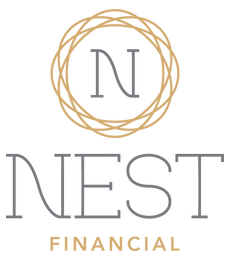If you read our blog
3 Steps for Managing Cash Flow as a Small Business Owner, then hopefully you have already managed to report steady profits. As you learned by (1) tracking your inflows versus outflows, (2) performing a cash flow analysis, and (3) preparing your budget. Things are running smoothly. But what about your
tax architecture? More than just a Tax Plan or Tax Strategy. Just as the construction of any home follows an architecture plan that was meticulously formed, your business should have a meticulously formed plan to maximize tax benefits.
Have you ever wondered how Warren Buffet is in the 15% tax bracket and still a billionaire? In short, he has plans in place to determine best strategies to minimize loss of funds. A tax architecture can help you do that.
Consider restructuring your tax plan or tax strategy as a small business owner. Or maybe as 1099 contractor when you reach six figures in revenue. Consult a financial planner to assist you in (1) opening the necessary accounts, (2) making appropriate contributions, and (3) aligning investments with your goals. Once these steps are completed, you can focus on reducing your taxes through deductions. Begin by maintaining records of all your expenses, noticing spending patterns, and utilizing them as deductions. These expenses include car expenses, home office expenses, advertising expenses, office supplies, employee gifts, continuing education, and business meals. Keep your records electronically and regularly upload statements from banks and credit cards into a program that organizes them into categories. It is recommended to maintain this practice throughout the year rather than waiting until December to organize receipts for your CPA.
In addition to recording expenses, you can also reduce your tax bill by paying for health insurance. Deductions can start when your healthcare costs exceed 7.5% of your adjusted gross income. Furthermore, if you have out-of-pocket medical expenses, those can possibly be tax-deductible. Check with your CPA to see how covering health insurance for your employees can be even more advantageous.
You have already taken the steps to think about your future. You and your
financial planner should be in agreement with the plans, and hopefully they include a vision for what your life will look like during
retirement. That being said, starting a retirement plan can help you earn
tax benefits as well. Look into Simplified Employee Pension Plan (SEP), IRA or Roth IRA, and even 403(b) as options for retirement.
As a small business owner, you are part of the 16% adult workforce who can claim to be their own boss. As an entrepreneur with a business that yields a profit, you are part of only 40% that can claim to do so (30% break even and the remaining 30% lose money). Work with your financial advisor to talk about a
tax strategy and as about your tax architecture sooner than later, as this could help you join another population of people with the elite statistics of being successful and financially independent.
This article is brought to you in part by the wizard behind the scenes with 23 years of experience,
Dan Dillard. Of course with his workshop of helpers including some handy hi-tech sourcing.
Find us on:
If you like reading more entrepreneurial stories In Austin check out Dan’s other company
foundingAustin. If you are into podcasts click
here.
DISCLAIMER: We are legally obligated to remind you that the information and opinions shared in this article are for educational purposes only. These are not financial planning or investment advice. For guidance about your unique goals, drop us a line at
info@nestfinancial.net





[…] Tax Architecture: Why You Should Start Designing Yours Now! […]